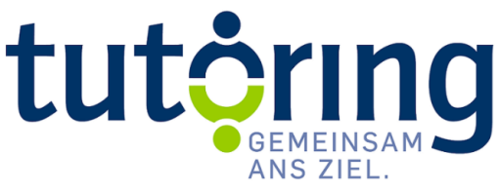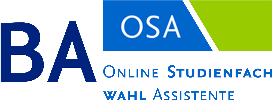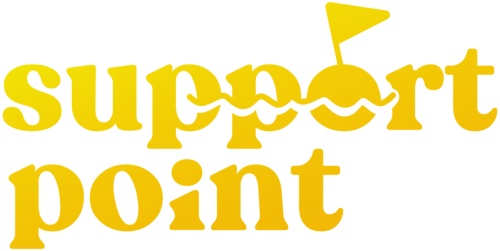Joint Workshop Symposium
The Texture, Structure, and Substance of Artworks
June 28–29, 2015
Organizer: East Asian Art History
Institute of Art History, Department of History and Cultural Studies
Freie Universität Berlin
In cooperation with: the Divisions of European and North American Art History, and Architectural History, Institute of Art History, Department of History and Cultural Studies, Freie Universität Berlin (FUB); the Seminar of East Asian Studies, Department of History and Cultural Studies, FUB; the Department of Fine Arts, School of Arts, Peking University (PKU); the School of Humanities, Department of Fine Arts, Zhejiang University (ZJU); and the Museum für Asiatische Kunst (MAK), Staatliche Museen zu Berlin (Asian Art Museum, National Museums in Berlin)
Funded by: the Center for International Cooperation, FUB, and the Gerda Henkel Foundation
Venue: Kleiner Vortragsraum (Small Lecture Room), Museum für Asiatische Kunst, Takustr. 40, 14195 Berlin
Date and Time: Sunday, June 28, 2015, 10:00 am–5:30 pm & Monday, June 29, 2015, 10:00 am–5:00 pm
The two-day joint workshop symposium takes into focus the textures, structures, and substances of objects and artefacts in view of their classification as works of art. The aim is to carve out the aspect of physical matter as an analytical category for art historical inquiry in examining the production, reception, consumption, and transmission of art within different geographical regions, historical periods, cultural frameworks, and social contexts. The workshop symposium is conceived as a strategic cooperative project of the Art History Institute of Freie Universität Berlin, the School of Arts of Peking University, and the Department of Fine Arts, School of Humanities, of Zhejiang University.
Traditionally, the material status of an art object is considered primarily in terms of its functionality as a medium, that is, a vehicle or carrier by which to formally transport or frame some sort of content or meaning (images, words, stories, iconographies). Recent scholarship in art history and likewise other fields of the humanities however has shown a distinct turn to material and visual culture studies, as well as media studies; therein shifting towards an understanding that objects and artifacts are significant on grounds of their existence and impact as physical entities, composite structures, and textured materials. The workshop picks up on this idea of the artwork as fulfilling a representative function and at the same bearing a presence of its own. It seeks to pinpoint in what way technical and structural aspects of an artwork’s material consistency define, and are likewise defined by, the production and reception of aesthetic form and content. Indeed, extensive research that has been undertaken on the materiality of art objects, for example with regard to the restoration and preservation of artworks, is invaluable for its formal analyses of techniques and materials. The workshop moreover aims to take the knowledge gained from these studies as a basis to expand their largely descriptive and formal viewpoints and use them, rather, as prisms to highlight the extent to which the material state of things has informed, and in turn been informed by, our aesthetic consciousness, thus resulting in the formation of specific styles, tastes, and ideals throughout time and space.
Through the presentation and discussion of individual papers, the workshop will provide insight into different specialized fields of art history. Whether in form of case studies that take into particular account historical and cultural contexts of art practice and discourse, or in form of broader and more general inquiries into certain art genres and their type-specific aspects of materiality, different methodological approaches to the overarching workshop theme of “The Texture, Structure, and Substance of Artworks” are explicitly welcome. Given the individual research foci of the workshop participants, a rich variety of subjects and genres in art and architecture promises to be covered. Further considering the various media that accompany these genres, papers will look into tactile aspects of different material surfaces, forms, and formats; as well as the physical conditions of fluidity, solidity, and permeability of organic substances—both in terms of material and immaterial matter. In conjunction with two previous joint workshop symposia that took place in 2012 (at FU Berlin) and 2014 (at Peking University), a focus continues to lie on the arts of East Asia and Europe. The working language of the symposium is English.
Joint Workshop Symposium
The Texture, Structure, and Substance of Artworks
June 28–29, 2015
PROGRAM
Sunday, June 28, 2015
10:00–10:15: Welcome Address, DING Ning (PKU), HUANG Houming (ZJU), Jeong-hee LEE-KALISCH (FUB)
10:20–10:40: Introduction, Jeong-hee LEE-KALISCH (FUB): The Texture, Structure, and Substance of Different Genres in East Asian Art
10:40–11:00: Coffee Break
Panel I: Intermediality: Multiple Dimensions of Image Re-/Production
11:00–11:20: Matthias WEISS (FUB): Graphic Entanglements of the Own and the Other’s Gaze: The "European Buildings" of the Summer Palace in Beijing Mirrored in Chinese Engravings and German and Swedish Photographs
11:35–11:55: WANG Ching-Ling (MAK/FUB): The Mustard Seed Effect: The Interplay between Chinese Painting and Woodcut Print
Moderation: Annegret BERGMANN (FUB)
12:15–14:00: Lunch Break (at restaurant for speakers and moderators)
Panel II: Between Values and Functions: Art and Architecture as Media of Imperial and Royal Display
14:00–14:20: LI Song (PKU): National History Displayed upon Tables: Understanding Chinese Emperor Qianlong’s Values through One or Two
14:35–14:55: Antje FEHRMANN (FUB): Materiality Enlightened: Aspects of Presence and Perception in the Medieval Architecture and Tombs of Westminster Abbey
Moderation: CHO Minju (JZU)
15:10–15:40: Coffee Break
Panel III: Substance and Genre: Concepts and Discourses of Materiality
15:40–16:00: Shao-Lan HERTEL (FUB): “Pattern Unfurls to Match Substance”: Stone Engraving Traditions in China and the Stuff of Words
16:15–16:35: Ulrike MÜLLER-HOFSTEDE (FUB): Sculpture: Three-Dimensionality and Reception Aesthetics in Theoretical Reflections in Sixteenth-Century Italy
16:50–17:30:HUANG Houming (ZJU): Materials, Norms, and Status: The Production of Bird Images in Liangzhu Culture as an Example
Moderation: DING Ning (PKU)
Monday, June 29, 2015
Panel IV: Geographies of Art: The Transformation of Icons across Space
10:00–10:20: TAN Shengguang (ZJU): Origins, Transformations, and Symbolization: New Examinations on Incense Burners of the Han Dynasty
10:35–10:55: XIE Jisheng (ZJU): The Emergence of the Image of sPyan ras gzigs phyag bzhi pa and the Spread of the Mantra Oṃ maṇi padme hūṃ in the Xixia-Yuan Period
Moderation: WANG Ching-Ling (MAK/FUB)
11:10–11:30: Coffee Break
Panel V: Medium-Specificity: Fibers, Fabrics, and Fluids in East Asian Art
11:30–11:50: CHO Minju (ZJU): Blue and Green Pigments in the Socio-Economic Context of China and Korea
12:05–12:25: Annegret BERGMANN (FUB): Printed Matter: Gold, Ink, and Paper in Japanese Woodblock Prints
Moderation: Wibke SCHRAPE (FUB)
12:40–14:10: Lunch Break (at restaurant for speakers and moderators)
Panel VI: Traces of the Mind: Perception, Structure, Thought
14:10–14:30: DING Ning (PKU): Traces of Ink in Chinese Painting
14:45–15:05: Juliane NOTH (FUB): Huang Binhong’s Late Paintings as Intersecting Series
Moderation: TAN Shengguang (ZJU)
15:20–15:50: Coffee Break
Panel VII: Envisioning Projects: Negotiating Materials between Traditional Ideals and Contemporary Environment
15:50–16:10: Heike FRICK (FUB): Materiality and Aesthetics: Environmental Art in China
16:25–16:45: Birgit HOPFENER (FUB): Qiu Zhijie and the Materiality of Total Art
Moderation: Shao-Lan HERTEL (FUB)
17:00: End of Symposium
18:00: Dinner (for speakers and moderators)
Symposium Venue: Kleiner Vortragsraum (Small Lecture Room), Museum für Asiatische Kunst (Asian Art Museum), Takustr. 40, 14195 Berlin
Date and Time: Sunday, June 28, 2015, 10:00 am–5:30 pm & Monday, June 29, 2015, 10:00 am–5:00 pm
The event is free and open to the public. Registration is required. To register, please contact: s.hertel@fu-berlin.de
Zeit & Ort
28.06.2015 - 29.06.2015
Museum für Asiatische Kunst, Kleiner Vortragssaal, Takustr. 40, 14195 Berlin





